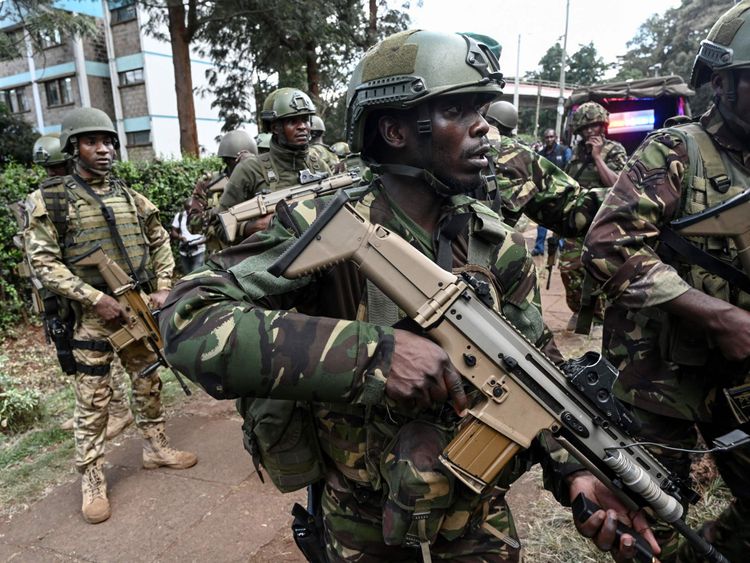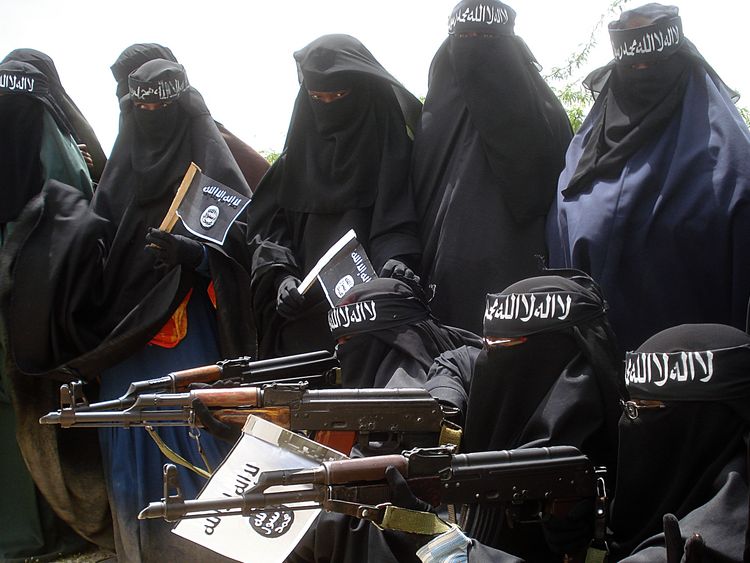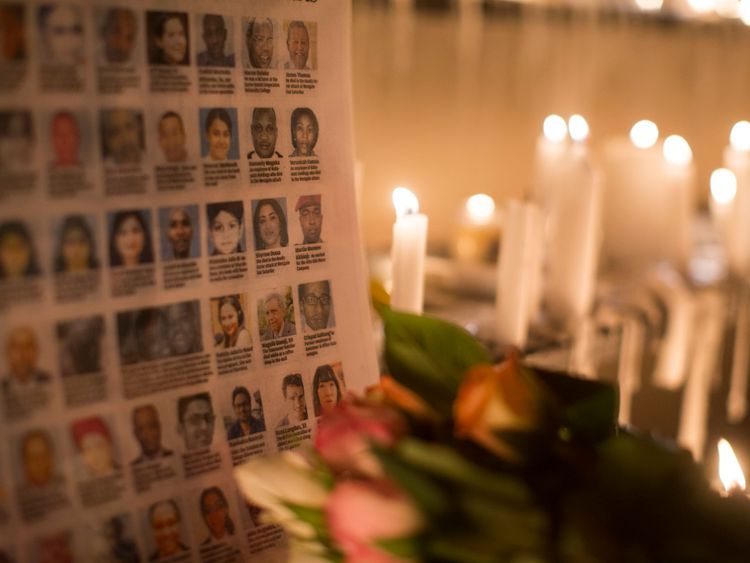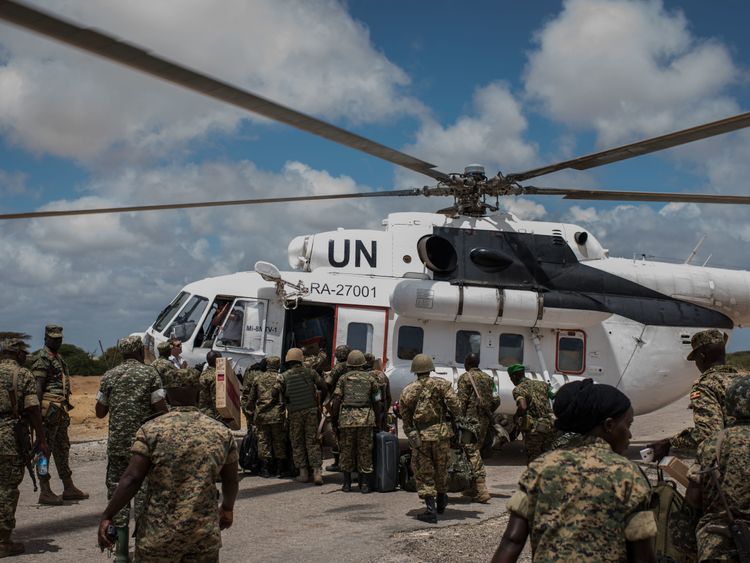As more than a dozen people are killed after an attack on a hotel in Nairobi, Kenya, what do we know about the group that has claimed responsibility of the attack?
Al Shabaab means “The Youth” in Arabic and the group emerged as the radical wing of Somalia’s Islamic Courts Union (ICU), which no longer exists.
The union controlled Somalia’s capital Mogadishu in 2006 before being defeated by Ethiopian forces (Ethiopia said it was reacting to a threat made against it). As the ICU fled to neighbouring countries, al Shabaab retreated to Somalia’s southern region where it regrouped and planned attacks.
Al Shabaab is viewed by the UK as a terrorist organisation and is believed to have up to 8,000 fighters, including many from other African countries and even from the US and Europe.
In 2012 they declared allegiance to al Qaeda.
What do they believe?
Al Shabaab supports the Wahhabi version of Islam and imposes strict Sharia laws in the areas it controls. They stone women accused of adultery and cut off the hands of thieves. Various types of entertainment are banned, beards cannot be shaved and international humanitarian agencies cannot be cooperated with.
But, perhaps surprisingly, they are concerned about the environment, banning single use plastics and the logging of rare trees in July last year. They did not say how they would enforce the bans.
The group’s main aim is to establish an Islamic state in Somalia but they are divided as to how much further afield they should concentrate. They are united, however, in opposition to any kind of western-backed government.
How successful has the group been?
Al Shabaab once controlled Mogadishu and much of the Somali countryside but it has been pushed back in recent years by an African Union-led campaign.
Some experts say the group controls more territory than they have since 2010 but the Somali government insists they are fading fast.
How are they funded?
They have funding from other terrorist groups, state sponsors (Eritrea, Iran, Saudi Arabia, Qatar, Syria and Yemen have all been accused but deny this), and from crimes such as piracy, kidnapping and extortion of local businesses and farmers.
According to US-based Security Council Report, the group earns millions of pounds a year through an illicit trade in charcoal, despite a UN ban on Somali charcoal exports.
What has al Shabaab done outside Somalia?
Their first major attack outside Somalia was in 2010 when coordinated suicide bombings killed 74 people in Kampala, the capital of Uganda. They said later that this was retaliation for the presence of Ugandan troops in Somalia.
In 2013 they killed 67 people in an attack on a shopping mall in the Kenyan capital Nairobi and two years later 148 people were killed when they attacked a university in the Kenyan city of Garissa. Kenya was also targeted because of the presence of its troops in Somalia.
The worst loss of life, however, was in Somalia, where twin truck bombings in October 2017 killed more than 500 people and injured more than 300. Al Shabaab did not claim responsibility but are widely suspected to have been behind the attack.
What is the rest of Africa doing about it?
In early 2007, the UN Security Council authorised a peacekeeping force in Somalia led by the African Union and Uganda was the first country to send troops. The force of around 20,000 also has contingents from Burundi, Ethiopia, Kenya, and Djibouti.
This presence is expected to wind down from early this year but there are fears that Somalia’s government could be left vulnerable if the African Union forces leave altogether. Although Somalia is inching towards stability, even in many of the areas it controls the government struggles to function fully.
What about Britain?
As of August last year, the British Army had 85 soldiers in Somalia training members of the country’s army, a job they have been doing since January 2017.
The Foreign Office advises against travel to almost all of Somalia due to the possibility of attacks from groups such as al Shabaa.




